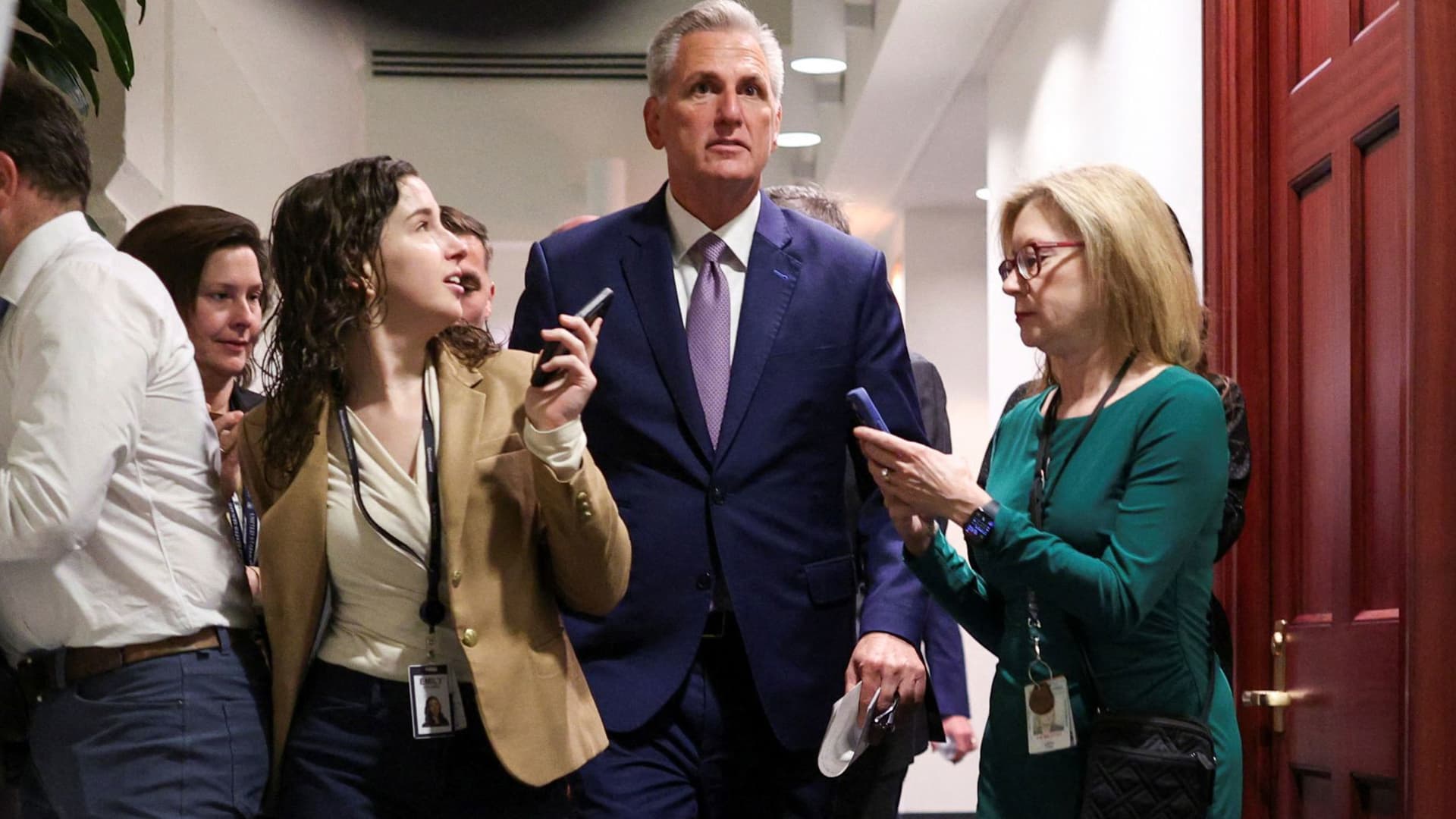WASHINGTON — A Republican bill to raise the debt limit and slash government funding passed the House on Wednesday, after 11th hour changes won over a group of holdouts within the GOP caucus.
The final tally was 217-215. Four Republicans joined Democrats in voting against their party’s signature piece of legislation.
The vote was a victory for embattled House Speaker Kevin McCarthy, R-Calif., capping off a 24-hour sprint that saw party leaders work past 2 a.m. ET on Wednesday morning to amend the bill.
The last-minute revisions included a rescue for ethanol and biofuel tax credits, which were set to be eliminated under the original bill. The prospect of losing the tax breaks infuriated a bloc of Republicans from Iowa and nearby states, who threatened to sink the bill unless McCarthy agreed to preserve the tax breaks, which he did.
Another bloc of conservatives demanded that McCarthy revise the bill to speed up implementation of new work requirements for adults who receive food stamps or Medicaid benefits. McCarthy also agreed to that demand.
With a margin of just four Republican votes for the bill to pass along party lines, McCarthy could not afford to lose either bloc’s support.
Still, the amendments rankled some rank-and-file members of the GOP caucus, because they came after McCarthy had prohibited members from introducing their own amendments, and insisted the bill in its original form was final and not up for discussion.
The Limit, Save and Grow Act has little to no chance of becoming law, which could help to explain why Republicans were ultimately willing to overlook McCarthy’s last minute, backroom deals.
Instead of viewing the provisions in the 320-page bill as future laws, per se, House Republicans view the plan more as a symbolic opening bid in the negotiations McCarthy will hold with President Joe Biden later this year over the debt limit and federal funding.
“There has been a lot of hard work that’s gone into how best to start this negotiation,” House Majority Leader Rep. Steve Scalise, R-La., told reporters Wednesday.
The White House sees things very differently, however.
“This bill is reckless attempt to extract extreme concessions as a condition for the United States simply paying the bills it has already incurred,” the Office of Management and Budget declared in a formal notice to the House on Tuesday that Biden would veto the GOP debt limit bill if it ever reached his desk.
“The President has been clear that he will not accept such attempts at hostage-taking. House Republicans must take default off the table and address the debt limit without demands and conditions,” the White House said.
While the White House and congressional Republicans remain miles apart, the clock is ticking for America’s ability to service its massive debt and continue to operate the federal government.
Without congressional approval on a bill to raise the debt limit or suspend it, the United States could face the unthinkable prospect of a default.
Several new reports this week suggest that a larger than expected drop in federal tax receipts this year may hasten the arrival of the so-called X-date. This is the projected date the Treasury Department will exhaust the emergency measures it is taking to prevent a federal debt default.
A note from Goldman Sachs predicted the “debt limit deadline to fall in late July,” as long as federal tax receipts only fell by 30% over last year. If federal revenues fell by 35%, however, the x-date could move up to “early June.”
